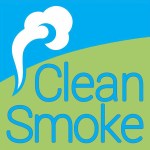Interview with Hans-Joachim Kunkel and Bernd Hackethal
Summary
Hans-Joachim Kunkel, CEO of fish factory „Die Räucherei“ in Klein-Meckelsen (Lower-Saxony), and Bernd Hackethal, owner of the Hackethal Butchery in Dortmund, have been using the CleanSmoke method successfully for many years. In 1997, Kunkel changed his entire production to CleanSmoke, making his fish-processing company the first one in all of Germany with a licence to smoke with freshly produced smoke made of pre- purified primary smoke products. He was especially assured by the fact that the quality of the high-grade raw materials would not be compromised by contaminants like it is during the conventional smoking process. Despite the switch to CleanSmoke, the fish factory has not only kept its old customers, but won lots of new ones. Bernd Hackethal’s company, which boasts a long history, producing meat products and cold cuts in Dortmund-Wickede since 1898, completely converted its production to CleanSmoke in the mid-1980s. A conversion, which was necessary, back then turned the father of the current CEO into a pioneer of modern smoking processes in Germany. He did not regret his decision: The taste characteristics of meat and cold cut products that have been smoked with CleanSmoke are considerably milder, more pleasant and harmonious. The tart taste nuances that came with smoldering smoke products became history. Thanks to the fact that smoke from primary smoke products can be measured out more accurately, Hackethal was able to achieve a consistently high product quality. This convinced its long-time customers as well.
CSC: Mr. Hackethal, Mr. Kunkel, how long have you already been applying CleanSmoke?
CSC: What were your first experiences with the new smoking process?
CSC: Do you experiment with the smoke from primary smoke condensate?
CSC: Which advantages did CleanSmoke achieve for the daily work?
CSC: Mr. Kunkel, you work for airline and hotel catering companies. Which part does smoking play there?
CSC: What speaks in favour of a breakthrough of CleanSmoke?
